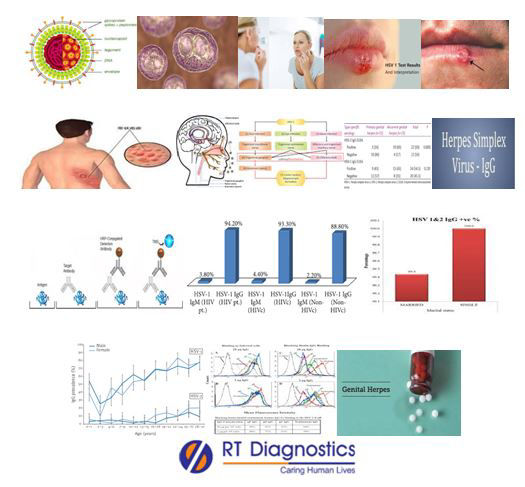What Is Positive Hsv 1 Igg? Symptoms & Treatment

When an individual tests positive for HSV 1 IgG, it indicates that their immune system has produced antibodies against the Herpes Simplex Virus Type 1. This is a common viral infection that can cause a range of symptoms, from mild to severe, primarily affecting the oral region but also capable of spreading to other parts of the body, including the genital area.
Understanding HSV 1 IgG
The Herpes Simplex Virus Type 1 (HSV-1) is one of the two main types of herpes viruses, the other being HSV-2, which primarily causes genital herpes. HSV-1 typically causes oral herpes, characterized by cold sores or fever blisters around the mouth. However, through oral-genital contact, HSV-1 can also cause genital herpes.
The IgG antibody is a type of immunoglobulin that indicates a past infection. The presence of HSV 1 IgG antibodies in the blood signifies that the individual has been exposed to the HSV-1 virus at some point in their life. This exposure could have resulted in noticeable symptoms, or the infection might have been asymptomatic.
Symptoms of HSV 1 Infection
While some individuals with HSV-1 may not exhibit any symptoms, others can experience a range of signs, including:
- Cold Sores or Fever Blisters: These are painful, fluid-filled blisters that typically appear around the mouth, lips, or gums. They can also appear on the tongue, inside the mouth, or on the face.
- Pain or Itching: Before the appearance of blisters, the skin may feel itchy or painful.
- Swollen Lymph Nodes: The lymph nodes in the neck may become swollen and tender.
- Fever: Some people may develop a fever, especially during the initial outbreak.
- Headache: A headache can accompany the fever and the outbreak of blisters.
Treatment for HSV 1
While there is no cure for HSV-1, various treatments can help manage the symptoms, reduce the severity and frequency of outbreaks, and minimize the risk of transmission to others. Treatment options include:
- Antiviral Medications: These medications, such as acyclovir, valacyclovir, and famciclovir, can help reduce the severity and duration of symptoms. They can also be prescribed as a suppressive therapy to prevent outbreaks.
- Topical Creams: Over-the-counter creams and ointments can provide relief from pain and itching.
- Lifestyle Changes: Keeping the affected area clean, applying cool compresses, and avoiding triggers such as stress, UV radiation, and certain foods can help manage symptoms.
Transmission and Prevention
HSV-1 can be transmitted through skin-to-skin contact with someone who has the virus, even when they do not have noticeable symptoms. This includes kissing, sharing utensils or drinks, and oral sex. Preventive measures include:
- Avoiding Skin Contact: Refraining from skin contact with someone who has active blisters.
- Using Condoms: During sexual activity, using condoms can reduce the risk of transmission.
- Maintaining Good Hygiene: Washing hands frequently, especially after touching the face or mouth.
Psychological Impact and Support
Living with a chronic condition like HSV-1 can have psychological implications, including anxiety, stress, and feelings of isolation. Seeking support from healthcare providers, counselors, or support groups can help individuals cope with these feelings and manage their condition effectively.
Conclusion
A positive HSV 1 IgG test result indicates past exposure to the HSV-1 virus. While the virus remains in the body for life, antiviral treatments and lifestyle adjustments can manage symptoms and reduce the risk of transmission. Understanding the virus, its symptoms, and the available treatments is crucial for individuals living with HSV-1, enabling them to lead healthy and fulfilling lives.
Frequently Asked Questions
What does a positive HSV 1 IgG test mean?
+A positive HSV 1 IgG test indicates that the individual has been exposed to the Herpes Simplex Virus Type 1 at some point in their life and has developed antibodies against it.
How is HSV-1 transmitted?
+HSV-1 can be transmitted through skin-to-skin contact, including kissing, sharing utensils or drinks, and oral sex, even when the infected person does not have active symptoms.
Is there a cure for HSV-1?
+There is no cure for HSV-1, but antiviral medications and lifestyle changes can help manage symptoms, reduce the frequency and severity of outbreaks, and minimize the risk of transmission.
Can HSV-1 cause genital herpes?
+Yes, HSV-1 can cause genital herpes through oral-genital contact. While HSV-2 is more commonly associated with genital herpes, HSV-1 can also infect the genital area.
How can I prevent the transmission of HSV-1?
+Prevention measures include avoiding skin contact with someone who has active blisters, using condoms during sexual activity, and maintaining good hygiene practices.
Can I lead a normal life with HSV-1?
+Yes, with proper management, individuals with HSV-1 can lead normal, healthy lives. This includes being aware of their condition, managing symptoms, and taking preventive measures to reduce the risk of transmission.
